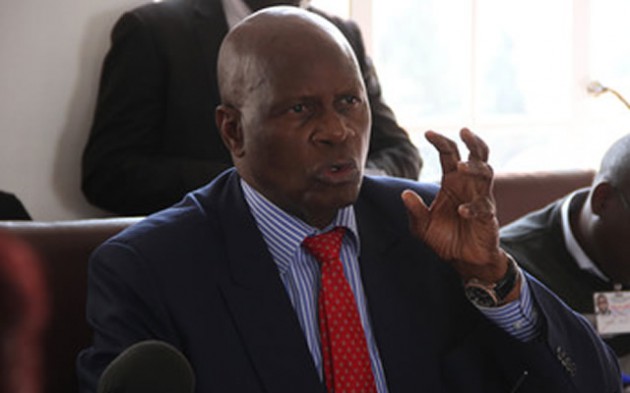
The Sunday News

Gabriel Masvora and Ngonidzashe Chiutsi Business Reporters
GOVERNMENT has laid the groundwork for Bulawayo to lead in the revival of the economy after it identified the city as a Special Economic Zone on Leather and Textiles in addition to banning the importation of second-hand clothing that was choking the industry. A glimpse into Finance Minister Patrick Chinamasa’s mid-year fiscal policy statement presented on Thursday showed that Bulawayo was the major beneficiary of the latest policy announcements which seek to create the right conditions to revive the economy.
Minister Chinamasa said five areas had been identified to be declared SECs with Bulawayo leading on Leather and Textiles while Lupane will be declared a zone for Chemicals.
Victoria Falls will be declared a Tourism and Finance zone, Sunway City a Technical HUB (ICT) while either Harare or Mutare would be declared a zone for diamond cutting.
“Government is now working on the supportive legal framework to operationalise the strategy,” said Minister Chinamasa.
But analysts noted that it was Bulawayo which got a fair share of the new policy announcement as Minister Chinamasa further announced a ban on importation of second-hand clothing and shoes, the same products that will anchor the city’s companies.
“Mr Speaker Sir, despite the Customs Duty rates of $5 per kg on clothing and 40 percent plus $1 per pair of shoes, which are meant to mitigate competition with the local industry, these products continue to flood the market.
This has resulted in reduced demand for locally produced goods, thereby stifling measures that have been put in place to resuscitate industry,” said Minister Chinamasa in support of the ban.
On the leather industry which has also been put into Bulawayo confines, the minister said with effect from October the Government had removed the Tax Free Export Quota of 25 percent on raw hides and skins.
“Exports of hides and skins will, thus, attract an export tax of 15 percent or $0,75 per kg, whichever is higher,”
Government introduced an export tax of 15 percent on gross value of raw hides and skins at the beginning of the year.
The export tax was applied on exports above the allocated 25 percent tax free quota and was aimed at providing a market for excess raw hides and skins that could not be processed locally, due to inadequate capacity of local tanneries.
However, local tanneries complained that they were now facing shortages of raw hides and skins, hence, recording a dip in capacity utilisation.
During the productive days in Bulawayo, the textile and leather sectors were the major employers in the city.
At one time the sector was a major employer with more than 30 000 workers on its books.
It also used to produce about 135 million garments annually, compared to the current 18,7 million garments.
However, most of the companies closed down due to a number of challenges.
Some of the companies that have closed include True Value, Label Fashion, Suntosha Leisure Wear, Luncaster, Harren Manufacturing, Ascot, Belmor Fashions, Cinderella and Rusglen Fashion.
However, Archer Clothing, which has been taken over by Paramount Garments, has been leading the revival and now aims at employing nearly 1 000 workers by year end.
Meanwhile, the local clothing industry has applauded the Government’s proposal to ban second-hand clothing.
In an interview with Sunday Business last week in Bulawayo, the National Employment Council for Clothing Industry general secretary Mr Justice Mashinti commended Government’s effort to revive the clothing sector.
“We applaud the Government’s proposal to ban second-hand clothing, but it should have gone further and totally banned importation of first-hand cheap and sub-standard clothes in the country,” said Mr Mashinti.
He said they would want quality clothing products that would fairly compete with locally produced clothing products.
“You can’t block competition but what we are calling for is protection from the importation of first-hand cheap products that are being sold dollar for two. We want goods that are going to meet certain standards like the Sadc and Comesa standards,” he said.
However, the National Vendors Union of Zimbabwe’s monitoring and evaluation officer Mr Edward Kapodogo said the ban on second-hand clothing was set to pose a huge blow to their members whose businesses thrives on selling such products.
“We don’t have companies that are manufacturing clothes and everyone knows how the economy is. Clothing companies are struggling. We are going to engage the Government and find a reasonable solution,” said Mr Kapodogo.
“The Government did not consult us and just came with a directive. We want a two-way communication channel. Selling second-hand clothes was a source of income for most of our members.”
A National Vendors Union of Zimbabwe member Mrs Lindani Mahlangu also echoed the same sentiments and said the selling of second-hand clothes was a huge source of income for many vendors.
“Through selling second-hand clothing, that’s where we are getting money to pay school fees and rent. So we don’t know what they would want us to sell when they ban us from selling those second-hand clothes,” she said.



